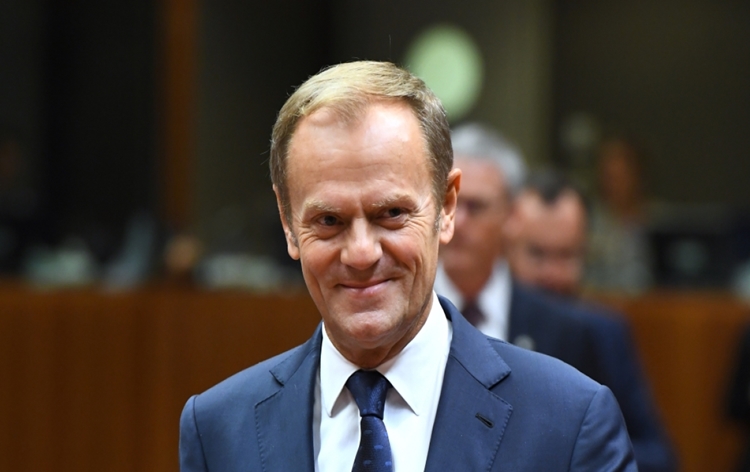Polish prime minister Donald Tusk’s government won a vote of confidence in parliament on Tuesday, as he set out a pro-European Union vision for Poland that marks radical change after eight years of nationalist rule and disputes with Brussels.
Presenting his government’s plans to lawmakers, Tusk said Poland would be a strong backer of Ukraine, a loyal ally of the United States and a committed member of the NATO military alliance.
He also signalled his determination to mend Warsaw’s ties with EU institutions after years of feuding over issues ranging from judicial independence and the rule of law to LGBT rights.
“Poland will regain its position as a leader in the European Union… Poland will build its strength, the position it deserves,” said Tusk during a policy expose, later promising to “bring back billions of euros” from Brussels.
Tusk received the support of 248 lawmakers while 201 voted against him, at the end of a sitting that was disrupted when a far-right deputy used a fire extinguisher to put out Hanukkah candles during an event in parliament with members of the Jewish community.
The new prime minister added his voice to a chorus of outrage and condemnation, labelling it a “bandit act”.
EU FUNDS
The European Commission, the EU executive, put significant funds earmarked for Poland on hold when the nationalist Law and Justice (PiS) party was in power because of concerns over the rule of law.
Poland has gained approval to access 5.1 billion euros ($5.5 billion) in advance payments as part of an EU programme to encourage a shift from Russian fossil fuels.
But the rest of a total of 59.8 billion euros in green transition and COVID-19 recovery funds is frozen until Warsaw rolls back a judicial overhaul implemented by PiS which critics say undermined the independence of the courts.
Despite his pro-EU line, Tusk, who was also prime minister from 2007 to 2014, said he would oppose any changes of EU treaties that would disadvantage Poland.
“Any attempts to change treaties that are against our interests are out of the question … no one will outplay me in the European Union,” said Tusk, a former president of the European Council, which groups the leaders of EU member states.
Tusk, 66, also promised his government would make defence a priority and honour previously signed arms contracts.
PiS lawmaker Ryszard Terlecki was unimpressed with Tusk’s speech. “It wasn’t very specific and it was long,” he said.
PiS came first in an Oct. 15 election and had the first shot at forming a government, but lacked the necessary majority to do so after all other parties ruled out working with it.
Tusk’s government will be sworn in by President Andrzej Duda on Wednesday before the new prime minister heads to Brussels for an EU summit.
UKRAINE TIES
The final months of Mateusz Morawiecki’s PiS government were marked by a souring of relations with Ukraine, mainly over Warsaw’s extension of a ban on Ukrainian grain imports.
With concerns growing in Kyiv about its Western allies’ commitment to funding its defence against Russia’s invasion, Tusk said Poland would advocate for continued support.
“We will … loudly and decisively demand the full mobilisation of the free world, the Western world, to help Ukraine in this war,” he said.
Ukraine also faces the possibility that Hungary will not give the green light for it to start EU accession talks at a Brussels summit this week.
Ties between Warsaw and Kyiv have been strained by a protest by Polish truckers who have blocked some border crossings in a dispute over Ukrainian trucking firms’ access to the EU.
Tusk said he would quickly resolve issues behind the protest, and that Poland would ensure its eastern border – an external border of the EU – is secure.
Poland has accused Belarus of orchestrating a migrant crisis on their border. But human rights activists have accused Poland of mistreating migrants, mainly from the Middle East and Africa, who have sought access from Belarus.
“You can protect the Polish border and be humane at the same time,” Tusk said.
He said that after he returned from this week’s EU summit he would meet the leaders of the Baltic states in Estonia to discuss the Ukraine war and safe borders.
(REUTERS)














